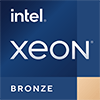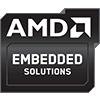
Intel Core i5-6500T Benchmark, Test and specs
Last updated:
The Intel Core i5-6500T is a 4 core processor. It can handle 4 threads simultaneously and was introduced in Q3/2015. The Intel Core i5-6500T is based on the 6. generation of the Intel Core i5 series and requires a mainboard with the socket LGA 1151. The Intel Core i5-6500T scores 785 points with one CPU core in the Geekbench 5 benchmark. When using all CPU cores, the result is 2,449 points.

| Name: | Intel Core i5-6500T |
|---|---|
| Family: | Intel Core i5 (331) |
| CPU group: | Intel Core i 6000 (24) |
| Architecture: | Skylake S |
| Segment: | Desktop / Server |
| Generation: | 6 |
| Predecessor: | -- |
| Successor: | Intel Core i5-7500T |
CPU Cores and Base Frequency
The 4 CPU cores of the Intel Core i5-6500T clock with 2.50 GHz (3.10 GHz). The number of CPU cores and the clock frequency of the processor are largely responsible for the overall performance.
| CPU Cores / Threads: | 4 / 4 |
|---|---|
| Core architecture: | normal |
| Cores: | 4x |
| Hyperthreading / SMT: | No |
|---|---|
| Overclocking: | No |
| Frequency: | 2.50 GHz |
| Turbo Frequency (1 Core): | 3.10 GHz |
| Turbo Frequency (4 Cores): | 2.80 GHz |
Internal Graphics
With the Intel HD Graphics 530, the Intel Core i5-6500T has an build in graphic solution. It has 24 SM processors, which have a total of 192 texture shaders. The iGPU not only enables games, but also significantly accelerates video playback.
| GPU name: | Intel HD Graphics 530 |
|---|---|
| GPU frequency: | 0.35 GHz |
| GPU (Turbo): | 1.15 GHz |
| Compute units: | 24 |
| Shader: | 192 |
| Hardware Raytracing: | No |
| Release date: | Q3/2015 |
| Max. displays: | 3 |
|---|---|
| Generation: | 9 |
| Direct X: | 12 |
| Technology: | 14 nm |
| Max. GPU Memory: | 32 GB |
| Frame Generation: | No |
Hardware codec support
Processors that have an integrated graphics can play videos faster and more efficiently. This can have a positive effect on the battery life of notebooks, for example.
| h265 / HEVC (8 bit): | Decode / Encode |
|---|---|
| h265 / HEVC (10 bit): | Decode |
| h264: | Decode / Encode |
| VP8: | Decode / Encode |
| VP9: | Decode |
| AV1: | No |
|---|---|
| AVC: | Decode / Encode |
| VC-1: | Decode |
| JPEG: | Decode / Encode |
Memory & PCIeThe Intel Core i5-6500T supports up to 64 GB memory in up to 2 (Dual Channel) memory channels. This results in a maximum memory bandwidth of 34.1 GB/s. |
|
| Memory type: | Memory bandwidth: |
|---|---|
| DDR4-2133 DDR3-1600 | 34.1 GB/s 25.6 GB/s |
| Max. Memory: | 64 GB |
| Memory channels: | 2 (Dual Channel) |
| ECC: | No |
| PCIe: | 3.0 x 16 |
| PCIe Bandwidth: | 15.8 GB/s |
Thermal ManagementWith the TDP, the processor manufacturer specifies the cooling solution required for the processor. The Intel Core i5-6500T has a TDP of 35 W. |
|
|---|---|
| TDP (PL1 / PBP): | 35 W |
| TDP (PL2): | -- |
| TDP up: | -- |
| TDP down: | -- |
| Tjunction max.: | -- |
Technical details
The Intel Core i5-6500T has a 6.00 MB large cache. The processor is manufactured in 14 nm. Modern production increases the efficiency of the processor.
| Technology: | 14 nm |
|---|---|
| Chip design: | Monolithic |
| Socket: | LGA 1151 |
| L2-Cache: | -- |
| L3-Cache: | 6.00 MB |
| AES-NI: | Yes |
| Operating systems: | Windows 10, Linux |
| Virtualization: | VT-x, VT-x EPT, VT-d |
|---|---|
| Instruction set (ISA): | x86-64 (64 bit) |
| ISA extensions: | SSE4.1, SSE4.2, AVX2 |
| Release date: | Q3/2015 |
| Release price: | -- |
| Part Number: | -- |
| Documents: | Technical data sheet |
Rate this processor
Benchmark results

The benchmark results for the Intel Core i5-6500T have been carefully checked by us. We only publish benchmark results that have been created by us or that have been submitted by a visitor and then checked by a team member. All results are based on and fullfill our benchmark guidelines.
Cinebench R23 (Single-Core)
Cinebench R23 is the successor of Cinebench R20 and is also based on the Cinema 4 Suite. Cinema 4 is a worldwide used software to create 3D forms. The single-core test only uses one CPU core, the amount of cores or hyperthreading ability doesn't count.

|
Intel Core i7-3770
4C 8T @ 3.90 GHz |
||

|
Intel Core i3-8100T
4C 4T @ 3.10 GHz |
||

|
Intel Core i5-4590
4C 4T @ 3.70 GHz |
||
|
|
Intel Core i5-6500T
4C 4T @ 3.10 GHz |
||

|
Intel Core i5-7200U
2C 4T @ 3.10 GHz |
||

|
Intel Core i7-6500U
2C 4T @ 3.10 GHz |
||

|
AMD Ryzen 5 PRO 2500U
4C 8T @ 3.60 GHz |
||
Cinebench R23 (Multi-Core)
Cinebench R23 is the successor of Cinebench R20 and is also based on the Cinema 4 Suite. Cinema 4 is a worldwide used software to create 3D forms. The multi-core test involves all CPU cores and taks a big advantage of hyperthreading.

|
AMD Ryzen 5 2500U
4C 8T @ 3.00 GHz |
||

|
Intel Core i5-4570
4C 4T @ 3.40 GHz |
||

|
Intel Core i5-3570K
4C 4T @ 3.80 GHz |
||
|
|
Intel Core i5-6500T
4C 4T @ 2.80 GHz |
||

|
Intel Core i5-3570
4C 4T @ 3.80 GHz |
||

|
Intel Processor N95
4C 4T @ 3.20 GHz |
||

|
Intel Core i7-2860QM
4C 8T @ 2.50 GHz |
||
Geekbench 5, 64bit (Single-Core)
Geekbench 5 is a cross plattform benchmark that heavily uses the systems memory. A fast memory will push the result a lot. The single-core test only uses one CPU core, the amount of cores or hyperthreading ability doesn't count.

|
Intel Core i5-4440
4C 4T @ 3.30 GHz |
||

|
Intel Core i7-7Y75
2C 4T @ 3.30 GHz |
||

|
Intel Xeon D-1732TE
8C 16T @ 3.00 GHz |
||
|
|
Intel Core i5-6500T
4C 4T @ 3.10 GHz |
||

|
Intel Pentium G3460
2C 2T @ 3.50 GHz |
||

|
Intel Core i5-3550
4C 4T @ 3.70 GHz |
||

|
AMD Ryzen 3 3250U
2C 4T @ 3.50 GHz |
||
Geekbench 5, 64bit (Multi-Core)
Geekbench 5 is a cross plattform benchmark that heavily uses the systems memory. A fast memory will push the result a lot. The multi-core test involves all CPU cores and taks a big advantage of hyperthreading.

|
Intel Pentium Gold G6605
2C 4T @ 4.30 GHz |
||

|
Intel Core i7-975
4C 8T @ 3.33 GHz |
||

|
Intel Core i5-3470S
4C 4T @ 2.90 GHz |
||
|
|
Intel Core i5-6500T
4C 4T @ 2.80 GHz |
||

|
Intel Core i7-2820QM
4C 8T @ 2.30 GHz |
||

|
Intel Core i5-1034G1
4C 8T @ 3.30 GHz |
||

|
Intel Core i7-2720QM
4C 8T @ 2.20 GHz |
||
Geekbench 6 (Single-Core)
Geekbench 6 is a benchmark for modern computers, notebooks and smartphones. What is new is an optimized utilization of newer CPU architectures, e.g. based on the big.LITTLE concept and combining CPU cores of different sizes. The single-core benchmark only evaluates the performance of the fastest CPU core, the number of CPU cores in a processor is irrelevant here.

|
Intel Xeon E5-2660 v4
14C 28T @ 3.20 GHz |
||

|
Intel Core i5-4570S
4C 4T @ 3.60 GHz |
||

|
Intel Xeon E5-2695 v4
18C 36T @ 3.30 GHz |
||
|
|
Intel Core i5-6500T
4C 4T @ 3.10 GHz |
||

|
Intel Core i7-4770T
4C 8T @ 3.70 GHz |
||

|
MediaTek Kompanio 1300T
8C 8T @ 2.60 GHz |
||

|
Intel Core i3-8100T
4C 4T @ 3.10 GHz |
||
Geekbench 6 (Multi-Core)
Geekbench 6 is a benchmark for modern computers, notebooks and smartphones. What is new is an optimized utilization of newer CPU architectures, e.g. based on the big.LITTLE concept and combining CPU cores of different sizes. The multi-core benchmark evaluates the performance of all of the processor's CPU cores. Virtual thread improvements such as AMD SMT or Intel's Hyper-Threading have a positive impact on the benchmark result.

|
Intel Xeon Bronze 3106
8C 8T @ 1.70 GHz |
||

|
Intel Core i5-6440HQ
4C 4T @ 3.10 GHz |
||

|
Intel Core i3-1115G4
2C 4T @ 3.00 GHz |
||
|
|
Intel Core i5-6500T
4C 4T @ 2.80 GHz |
||

|
Intel Xeon D-1528
6C 12T @ 1.90 GHz |
||

|
AMD Ryzen 3 PRO 1200
4C 4T @ 3.30 GHz |
||

|
AMD Ryzen 3 1200
4C 4T @ 3.10 GHz |
||
iGPU - FP32 Performance (Single-precision GFLOPS)
The theoretical computing performance of the internal graphics unit of the processor with simple accuracy (32 bit) in GFLOPS. GFLOPS indicates how many billion floating point operations the iGPU can perform per second.

|
Intel Core i5-6600K
Intel HD Graphics 530 @ 1.15 GHz |
||

|
Intel Core i7-6700
Intel HD Graphics 530 @ 1.15 GHz |
||

|
Intel Core i7-6700K
Intel HD Graphics 530 @ 1.15 GHz |
||
|
|
Intel Core i5-6500T
Intel HD Graphics 530 @ 1.15 GHz |
||

|
Intel Core i5-10210U
Intel UHD Graphics (Comet Lake) @ 1.10 GHz |
||

|
AMD RX-416GD
AMD Radeon R6 (Merlin Falcon) @ 0.58 GHz |
||

|
Intel Core i7-4940MX
Intel HD Graphics 4600 @ 1.35 GHz |
||
Estimated results for PassMark CPU Mark
Some of the CPUs listed below have been benchmarked by CPU-monkey. However the majority of CPUs have not been tested and the results have been estimated by a CPU-monkey’s secret proprietary formula. As such they do not accurately reflect the actual Passmark CPU mark values and are not endorsed by PassMark Software Pty Ltd.

|
Intel Core i5-7400T
4C 4T @ 2.80 GHz |
||

|
AMD FX-4170
4C 4T @ 4.40 GHz |
||

|
Intel Core i5-10210Y
4C 8T @ 2.10 GHz |
||
|
|
Intel Core i5-6500T
4C 4T @ 2.80 GHz |
||

|
Intel Atom C3758
8C 8T @ 2.20 GHz |
||

|
AMD FX-4150
4C 4T @ 4.10 GHz |
||

|
Intel Core i5-4440
4C 4T @ 3.20 GHz |
||
Cinebench R15 (Single-Core)
Cinebench R15 is the successor of Cinebench 11.5 and is also based on the Cinema 4 Suite. Cinema 4 is a worldwide used software to create 3D forms. The single-core test only uses one CPU core, the amount of cores or hyperthreading ability doesn't count.

|
Intel Core i5-4330M
2C 4T @ 3.50 GHz |
||

|
Intel Pentium G3450
2C 2T @ 3.40 GHz |
||

|
Intel Xeon E5-2660 v4
14C 28T @ 3.20 GHz |
||
|
|
Intel Core i5-6500T
4C 4T @ 3.10 GHz |
||

|
AMD Ryzen 5 2400GE
4C 8T @ 3.50 GHz |
||

|
Intel Core i5-8210Y
2C 4T @ 3.60 GHz |
||

|
Intel Core i3-8100T
4C 4T @ 3.10 GHz |
||
Cinebench R15 (Multi-Core)
Cinebench R15 is the successor of Cinebench 11.5 and is also based on the Cinema 4 Suite. Cinema 4 is a worldwide used software to create 3D forms. The multi-core test involves all CPU cores and taks a big advantage of hyperthreading.

|
Intel Core i5-7400T
4C 4T @ 2.80 GHz |
||

|
Intel Core i5-6300HQ
4C 4T @ 2.70 GHz |
||

|
AMD Phenom II X6 1075T
6C 6T @ 3.50 GHz |
||
|
|
Intel Core i5-6500T
4C 4T @ 2.80 GHz |
||

|
Intel Core i5-4570S
4C 4T @ 3.20 GHz |
||

|
Intel Core i5-4440
4C 4T @ 3.20 GHz |
||

|
Intel Core i5-2500k
4C 4T @ 3.70 GHz |
||
Benchmarks

Cinebench R23 (SC)
586 entries
586 entries

Cinebench R23 (MC)
565 entries
565 entries

Geekbench 5 (SC)
2,488 entries
2,488 entries

Geekbench 5 (MC)
2,461 entries
2,461 entries

Geekbench 6 (SC)
1,755 entries
1,755 entries

Geekbench 6 (MC)
1,703 entries
1,703 entries

FP32 SP (iGPU)
2,042 entries
2,042 entries

PassMark CPU-Mark
2,392 entries
2,392 entries

Cinebench R15 (SC)
1,106 entries
1,106 entries

Cinebench R15 (MC)
1,101 entries
1,101 entries

Geekbench 3 (SC)
942 entries
942 entries

Geekbench 3 (MC)
938 entries
938 entries

Cinebench R11.5 (SC)
825 entries
825 entries

Cinebench R11.5 (MC)
836 entries
836 entries

Cinebench R11.5 iGPU
383 entries
383 entries
Description of the processor
The Intel Core i5-6500T comes from Intels "Skylake S" architecture. The desktop processor has 4 CPU cores. Intels Hyper-Threading technology, which allows one additional thread per CPU core, is not supported by the Intel Core i5-6500T. It can process 4 threads at the same time.The clock frequency of the Intel Core i5-6500T is a low 2.5 GHz. Intels T processors usually clock significantly lower than their normal sister models, but the T models require less energy. The performance is reduced compared to the normal models. This also makes it possible to install the Intel Core i5-6500T in a small case, which would normally not be suitable for a normal model in this series.
The Intel Core i5-6500T has a Turbo mode. This allows the processor to dynamically adjust its clock frequency and increase it to up to 3.1 GHz. With load on all CPU cores, up to 2.8 GHz in turbo mode is possible with good cooling.
The Intel HD Graphics 530 is installed as integrated graphics in the Intel Core i5-6500T. However, the graphics performance is quite low, so the graphics card is not suitable for computer games. It is used for image and video output. If you dont need much graphics performance, you dont need to install a dedicated graphics card.
The Intel Core i5-6500T supports DDR3-1600 and DDR4-2133 memory. Memory support lies with the motherboard; memory types cannot be mixed. The performance difference between memory types is quite small. DDR4-2133 memory reaches a maximum of 34.1 GB/s in dual-channel mode (in which at least two memory modules are installed). The older DDR3-1600 memory has a maximum of 25.6 GB/s.
A maximum of 64 GB of RAM can be installed. The TDP of the Intel Core i5-6500T is a low 35 watts. In Turbo mode, the TDP can also be permanently exceeded.
Popular comparisons
back to index





